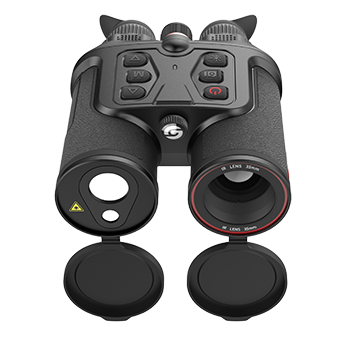
html
Thermal Imaging Binoculars: Advanced Night Vision Technology
Thermal imaging binoculars have revolutionized the way we see in low-light or complete darkness. Unlike traditional night vision devices that rely on amplifying available light, thermal imaging detects heat signatures emitted by objects, making it an invaluable tool for various applications.
How Thermal Imaging Binoculars Work
Thermal imaging binoculars operate by detecting infrared radiation (heat) emitted by objects. This technology converts the heat signatures into visible images, allowing users to see clearly in total darkness, through smoke, fog, or even light foliage. The key components include:
- Infrared detectors that capture heat signatures
- Advanced processors that convert thermal data into images
- High-resolution displays for clear visualization
Applications of Thermal Imaging Binoculars
The versatility of thermal imaging binoculars makes them useful in numerous fields:
Military and Law Enforcement
These devices provide tactical advantages in surveillance, search and rescue operations, and border patrol by detecting human presence regardless of lighting conditions.
Hunting and Wildlife Observation
Hunters and wildlife researchers use thermal binoculars to track animals at night without disturbing their natural behavior patterns.
Industrial Inspections
Thermal imaging helps identify overheating equipment, electrical faults, and insulation problems in industrial settings.
Advantages Over Traditional Night Vision
Thermal imaging binoculars offer several benefits compared to conventional night vision devices:
- Operate in complete darkness without any ambient light
- See through obscurants like smoke, fog, and light foliage
- Detect hidden objects or people based on heat signatures
- Longer detection ranges in many cases
Choosing the Right Thermal Imaging Binoculars
When selecting thermal binoculars, consider these factors:
- Resolution: Higher resolution provides clearer images
- Detection Range: Choose based on your typical viewing distances
- Refresh Rate: Higher rates offer smoother images for moving targets
- Battery Life: Important for extended use in the field
- Additional Features: Look for recording capabilities, WiFi connectivity, or rangefinders
As technology advances, thermal imaging binoculars continue to become more affordable and accessible to civilian users, opening up new possibilities for nighttime observation and security applications.
Keyword: thermal imaging binoculars